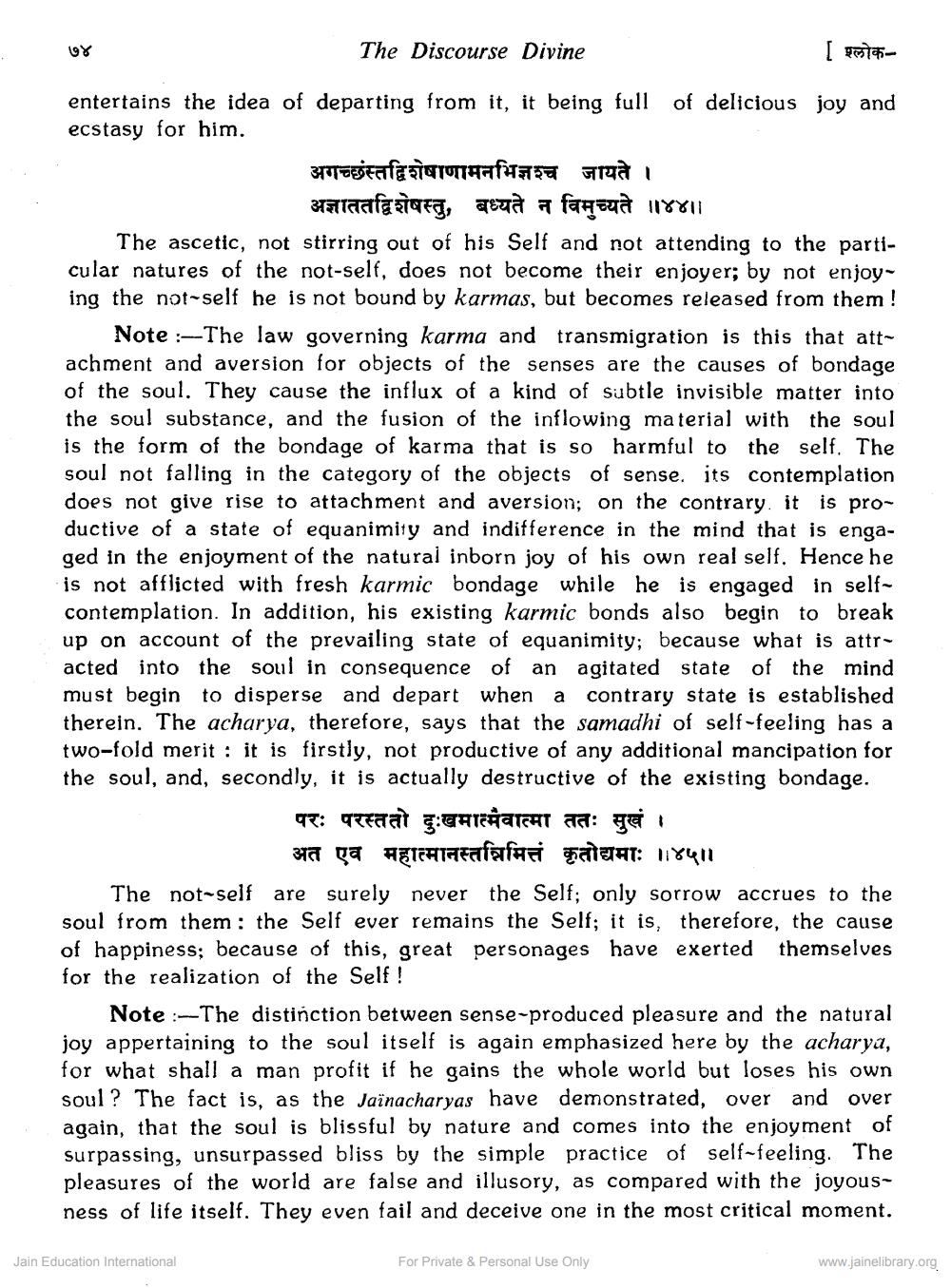________________
७४
The Discourse Divine
[
19
entertains the idea of departing from it, it being full of delicious joy and ecstasy for him.
अगच्छंस्तद्विशेषाणामनभिज्ञश्च जायते ।
अज्ञाततद्विशेषस्तु, बध्यते न विमुच्यते ॥४४॥ The ascetic, not stirring out of his Self and not attending to the particular natures of the not-self, does not become their enjoyer; by not enjoying the not-self he is not bound by karmas, but becomes released from them!
Note :-The law governing karma and transmigration is this that attachment and aversion for objects of the senses are the causes of bondage of the soul. They cause the influx of a kind of subtle invisible matter into the soul substance, and the fusion of the inflowing material with the soul is the form of the bondage of karma that is so harmful to the self. The soul not falling in the category of the objects of sense. its contemplation does not give rise to attachment and aversion; on the contrary, it is productive of a state of equanimity and indifference in the mind that is engaged in the enjoyment of the natural inborn joy of his own real self. Hence he is not afflicted with fresh karmic bondage while he is engaged in selfcontemplation. In addition, his existing karmic bonds also begin to break up on account of the prevailing state of equanimity; because what is attracted into the soul in consequence of an agitated state of the mind must begin to disperse and depart when a contrary state is established therein. The acharya, therefore, says that the samadhi of self-feeling has a two-fold merit : it is firstly, not productive of any additional mancipation for the soul, and, secondly, it is actually destructive of the existing bondage.
परः परस्ततो दुःखमात्मैवात्मा ततः सुखं ।
अत एव महात्मानस्तन्निमित्तं कृतोद्यमाः ॥४५॥ The not-self are surely never the Self; only sorrow accrues to the soul from them : the Self ever remains the Self; it is, therefore, the cause of happiness; because of this, great personages have exerted themselves for the realization of the Self!
Note :-The distinction between sense-produced pleasure and the natural joy appertaining to the soul itself is again emphasized here by the acharya, for what shall a man profit if he gains the whole world but loses his own soul? The fact is, as the Jaïnacharyas have demonstrated, over and over again, that the soul is blissful by nature and comes into the enjoyment of surpassing, unsurpassed bliss by the simple practice of self-feeling. The pleasures of the world are false and illusory, as compared with the joyousness of life itself. They even fail and deceive one in the most critical moment.
Jain Education International
For Private & Personal Use Only
www.jainelibrary.org




